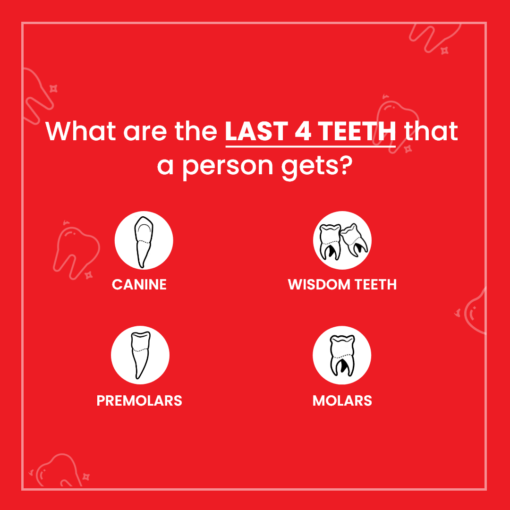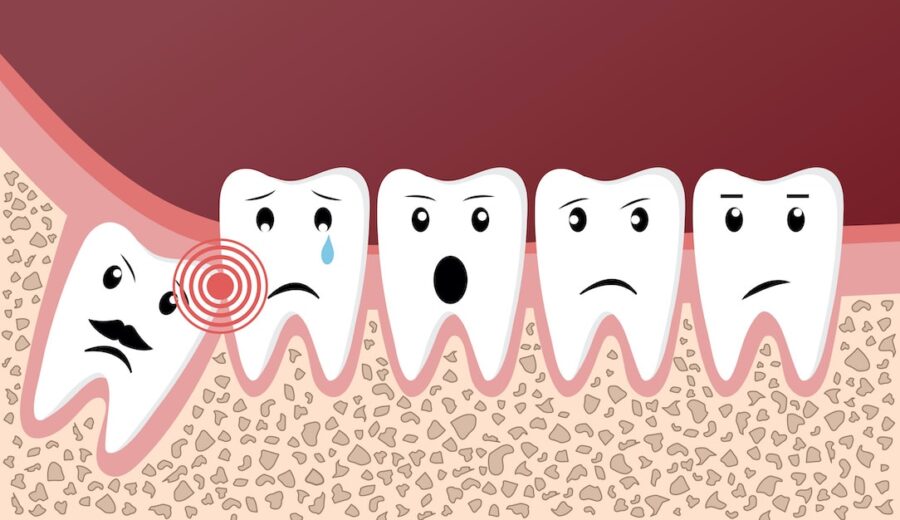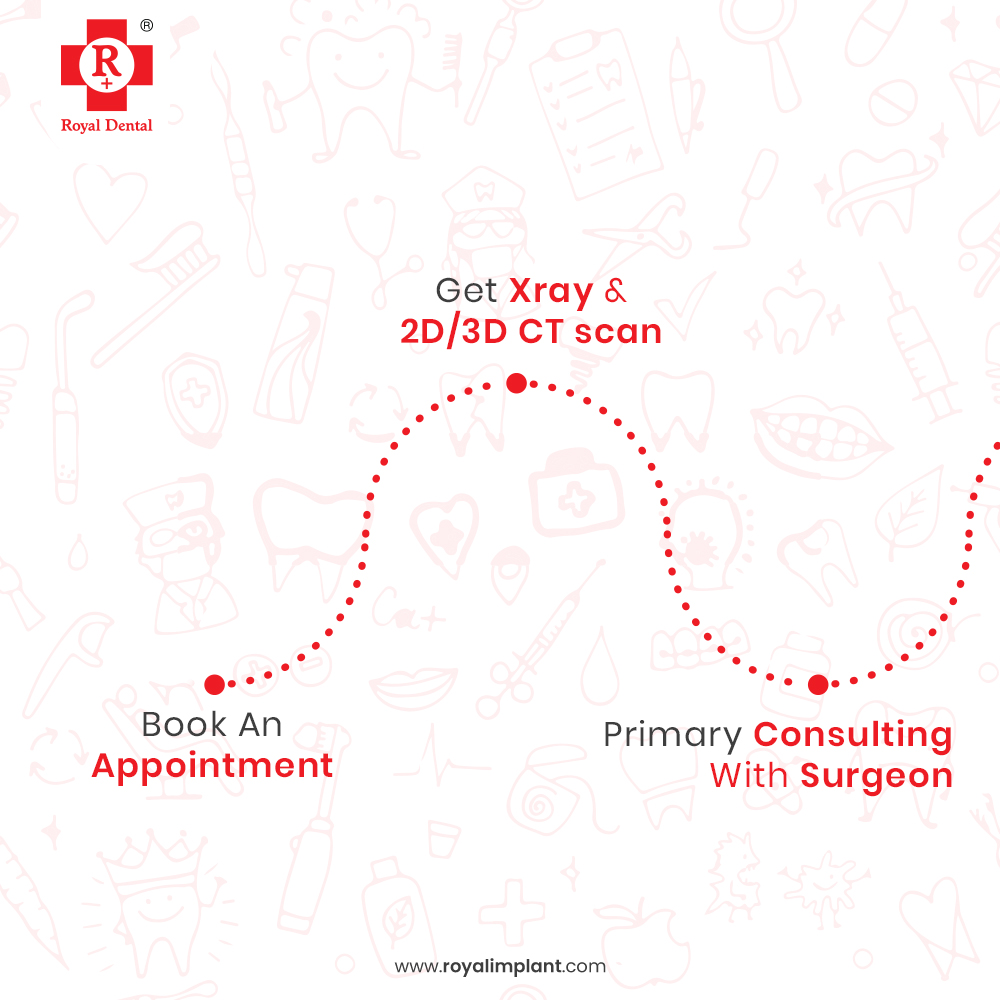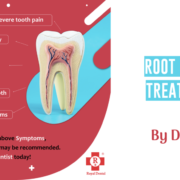If you’re in your early twenties, it’s a good time to have a serious conversation with your dentist about whether or not you should get your wisdom teeth removed. Even if you’re older and haven’t had that talk yet, it’s never too late to learn more about the pros and cons of this oral procedure. If you’re reading this article, there’s a good chance you need to know whether or not you should get them removed. Unless you were fortunate enough to be born with no third molars at all, that’s probably why you’re here. Having a conversation with your dentist about oral health implications of third molar teeth removal is vital. You may want to save some teeth.
What are Wisdom Teeth?
They are the last teeth to come in and out of your mouth, usually between the ages of 17 and 25. They are located at the back of your mouth, behind your two middle teeth. Although these teeth are usually impacted, which means they don’t fully erupt from the gum line, they can become a problem for some people. The problem with it is that they can be misaligned, impacted, or grow sideways in your mouth. If they are misaligned or impacted, they can cause pain, infections, or damage to your other teeth.

Should you get your Wisdom Teeth removed?
Even though they’re often referred to as “your old teeth,” wisdom teeth usually aren’t ready to be removed until you’re in your mid-twenties. That’s because the average person’s mouth is fully developed by their 22nd birthday. If your wisdom teeth are causing you pain or have the potential to cause damage to your jawbone or other teeth, however, you may want to consider having them removed.
In another educating video from the series of Know More About Oral Health by Dr. Chirag Chamria, Oral & Maxillofacial Surgeon, goes ahead and introduces us and educates us on to the topic of whether it is necessary to remove a wisdom tooth. Dr. Chirag Chamria mentions that one in five cases face some kind of issues with the Third Molar or Wisdom tooth. He advises on the decision making process, when it comes to Wisdom Teeth.
Youtube
Before deciding to have your wisdom teeth removed, make sure you’re aware of the potential risks of the surgery. Since they’re so near the jawline, there’s a small risk of nerve damage or infection. You’ll also need to take time off work and make sure you have proper recovery procedures in place.
How is Wisdom teeth procedure Performed?
If you decide to remove your wisdom teeth, you’ll likely be given a local anaesthetic. The surgery itself can vary from person to person, but a typical third molar teeth extraction takes about 15 minutes. The dentist will then place a liquid dressing over the wound and sutures may or may not be used. Your dentist will determine if you’re a good candidate for tooth extraction, but several factors can affect your decision.
Your age and general health: Young people have a reduced risk of complications related to anaesthesia and surgery. There’s also a higher risk of complications if you have high blood pressure, diabetes, or other health conditions. Your oral health: If you have gum disease, your dentist may want to wait until it’s treated. The location of your wisdom teeth: If they’re growing sideways or if they’re blocking other teeth from coming in, they’ll need to be removed.
Pros of getting Wisdom Teeth removed
You’ll reduce the risk of future problems – If your third molar teeth are misaligned, they can damage your other teeth. If they’re impacted, they can be extremely painful. If you have them removed, you’ll reduce your risk of future problems.
Can have more room for healthy teeth – Wisdom teeth are often very tiny, and if they’re not removed, they tend to become trapped behind other. If you try to keep them, you’ll have less room for other teeth in your mouth, which can lead to problems.


You’ll reduce the risk of infection – Your wisdom teeth can become infected, which is why many dentists recommend removing them.
Preventing Crowding: Wisdom teeth can cause crowding of the other teeth, which can lead to shifting, misalignment, and bite problems. Removing the wisdom teeth can prevent these issues from developing.
Relieving Pain and Discomfort: Some people experience pain, discomfort, or swelling when their wisdom teeth begin to emerge. Removing the wisdom teeth can alleviate these symptoms.
Improving Oral Health: By removing problematic wisdom teeth, the overall oral health can be improved and the risk of future dental problems can be reduced.
Reducing the Risk of Decay and Gum Disease: Wisdom teeth can be difficult to clean properly, which can lead to the buildup of plaque and bacteria. This can increase the risk of decay and gum disease. Removing the wisdom teeth can reduce these risks.
Making Room for Orthodontic Treatment: If orthodontic treatment is needed, removing the wisdom teeth can make room for the movement of other teeth into their proper positions.
Cons of Getting Your Wisdom Teeth Removed
There’s a risk of infection and swelling – Since the surgery is being done near your jawline, there’s a higher risk of infection. Some bleeding is normal after wisdom teeth removal, and should resolve within a few hours. Bruising around the mouth and jaw is also common after wisdom teeth removal, and can last for several days.
You’ll need to take time off work – Depending on the type of job you have, you may need a few days off work after the procedure. You may also need to follow certain instructions to reduce swelling.
Cost: Wisdom teeth removal can be a costly procedure, and may not be covered by dental insurance.
There’s a chance of damaging your other teeth – While there’s a risk of damaging your other teeth during a wisdom teeth extraction, there’s also a risk of damage during other types of oral surgery, including a root canal.
You may have to pay for the procedure yourself – Most dental insurance plans don’t cover their removal. If you don’t have enough money in your savings account. You could end up paying for the procedure out of pocket.
Pain and Discomfort: The removal of wisdom teeth can be accompanied by some pain and discomfort, which can last for a few days to a week after the procedure. In rare cases, temporary numbness of the tongue, lip, or chin can occur after wisdom teeth removal, due to nerve damage during the procedure.
Dry Socket: In rare cases, a painful condition called dry socket can develop after wisdom teeth removal. This occurs when the blood clot that normally forms at the extraction site is dislodged, exposing the underlying bone and nerve.
Final Words
Third molar teeth are a normal part of the development of your mouth, but they often cause problems for people. If your wisdom teeth are misaligned, impacted. Or have a high risk of causing damage to your other teeth, you may want to have them removed. The procedure is safe and effective, and most people can go back to their daily routine soon after. If you’re in your twenties, now is the perfect time to discuss the pros and cons of having them removed with your dentist.
About Dr. Chirag Chamria
Dr Chirag is a well-regarded oral and maxillofacial surgeon at Royal Dental Clinic in Mumbai who specialises in a wide range of dental procedures. With a Bachelor of Dental Surgery and a Master of Dental Surgery in Oral and Maxillofacial Surgery from Mumbai.
Suggested Article:
Does everyone have Third Molar Teeth?
Follow Us For More Updates





